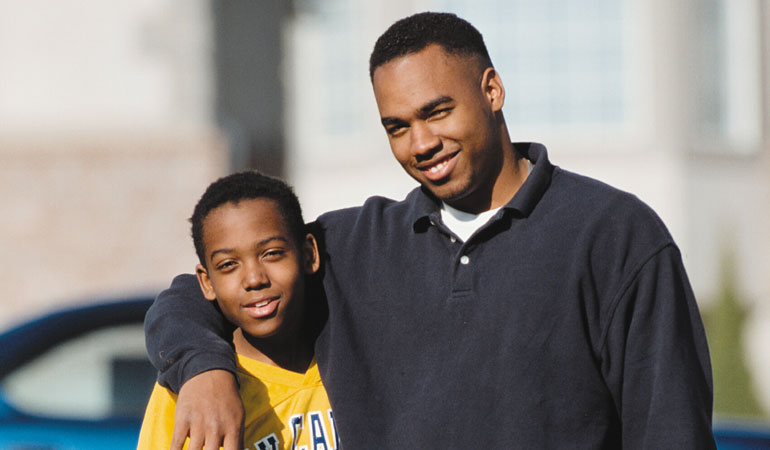All children need role models: men and women, other than their parents, to whom they can relate. Maybe it’s the local librarian, a beautiful woman nearly six feet tall, whom your gangly daughter sees as a common body type.
Or maybe it’s your cousin John, who tells your nine-year-old that he also felt miserable when he first got glasses. An adult who can reinforce feelings is important to every child.
It’s even more important to children who are adopted. Attentive as we are as parents, we cannot know how it feels to have been surrendered at birth or share fantasies of a mother we never knew. Adult adoptees can share these thoughts — or how they coped with a difficult period. Sometimes, just pointing out that a respected adult was adopted may be enough to reassure a child.
Children who have been transracially adopted benefit particularly from knowing adults of the same race. These mentors can inspire children to see themselves with pride. “So that’s what I’ll look like when I grow up,” a child may think, as he watches your Korean neighbor across the dinner table.
Friends, doctors, and teachers of another race can provide examples of who our children can aspire to be as adults. Like their mentors, they will have ease with moving among several racial worlds.
If our child matches us racially but is ethnically different from us, and especially if he or she was adopted internationally, it is beneficial to build relationships with adults who are ethnically the same or similar to our child.
It is one thing to learn about Russia from books. It is quite another to know a Russian-born adult who can share stories about the country and her family there. These real-life, real-time relationships make Russia a living culture for a child. Also, a person of Russian descent can help a child imagine what a birth parent might look like.
Finally, for children in single-parent families or two-mommy or two-daddy families, providing role models can help children have meaningful relationships with adults of the opposite gender. When other children make comments about how they lack a dad or a mom, these kids need some adults who play those roles in their lives.
This is where friends and relatives come into the picture — “aunts” and “uncles” for a child who needs gender models on both sides of the sexual spectrum.
Certainly, role models should be a consideration when you select a doctor for your child, or even a music teacher. And most important are the faces your child sees around your dinner table. Finding friends of all racial and ethnic backgrounds says to our children, “we’re all one family, no matter our color or creed.” And that’s not a bad message for any of us.



